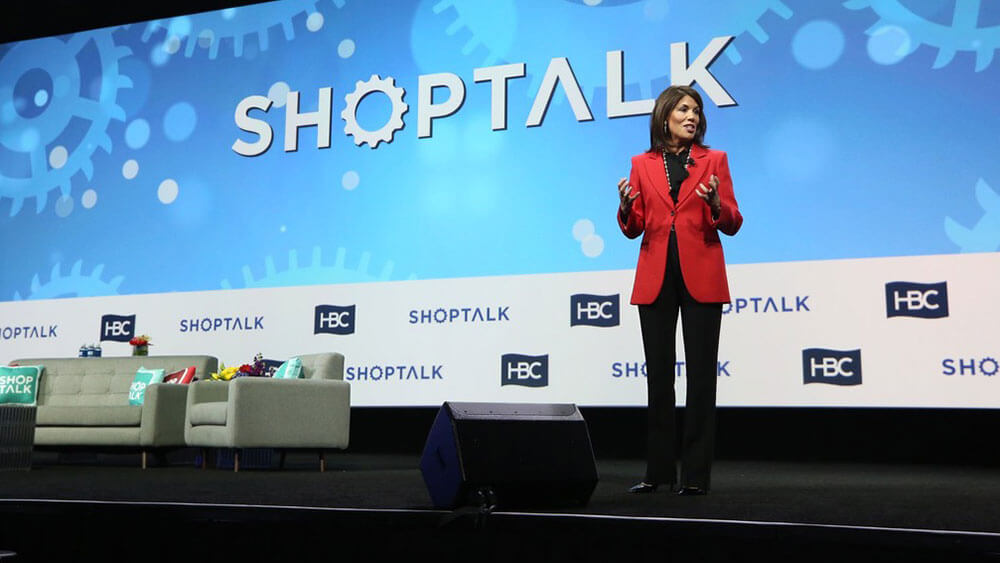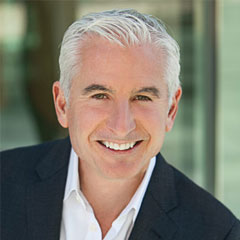
Rachel Shechtman, brand experience officer and founder of STORY at Macy’s, gives her keynote speech at the 2019 Shoptalk conference in Las Vegas. Shoptalk and other new events have adopted startup mentalities. (Courtesy Shoptalk)

Don Neal
Association, nonprofit, or company employees can — and should — think like a startup. Working in a far more predictable environment than a startup, these employees have the advantage of being able to build upon an established track record, resources, audience, and brand. And those with a startup mindset are more valuable to their employers, who are no longer interested in employing people with 20 years of experience who really just have one year of experience, repeated 20 times.
Your best hope for job security is to help your organization see a new future. And there is no better place to put a startup mindset to work than at your event. You may think it’s wiser to evolve and make incremental — rather than major — changes. However, that’s not how your for-profit competitors are thinking. New events like Groceryshop, Shoptalk, HLTH, and hundreds of others — startups in their own right — have captured serious market share, much of it coming at the expense of associations. And by starting a new event from scratch, they aren’t limited to the same old formula many of your volunteers, board members, committees, and leaders seek to preserve.
Here are five things you can do to think and act like a startup:
Don’t Ask for Permission
Sure, you need to get your boss on board but make some moves on your own without asking. Invite a well-known protester to discuss an issue up for debate with one of your industry’s top minds. Schedule 25 percent of your sessions with polling, audience interaction, and questions that are woven into at least half of the session.
Strive to Design an Ecosystem
That’s an event that has as many adjacent sectors represented as possible, to expand the focus, dialogue, and problem-solving that is only possible with divergent people in the room. If you represent a medical association, invite experts from the industry, regulators, insurance providers, telemedicine, acupuncturists, holistic healers, and technology innovators. Design intentional curriculum and systematic journeys for them to meet, interact, and solve vexing problems in a new way. Hackathons only work with widely diverse participants.
Stop the Madness
“Brown” food, uncomfortable chairs, ice-cold rooms, overscheduled programs, trade shows designed for the vendors rather than the audience, insufficient places to sit throughout the venue, spotty Wi-Fi, charging stations that require payment — these are just a sampling of the kind of tolerated worst practices at traditional events that startups would eschew.
Get Real
Tackle the actual challenges your industry is facing — lack of diversity and inclusion, class systems among members, unfair pay scales, legislation that needs your advocacy, wage gaps. You know what the gnarly topics are — embrace them. No one likes a boring movie with no tension or conflict. Your audience can take it.
Work with a Wing Wo/man
Hire someone who has been where you want to go. Said another way: If you want to go fast, go alone, if you want to go far, go together. At a minimum, talk to the people who have started up new events, reinvented trade shows, and learned from their mistakes.
You’d be surprised just how much your audience is waiting for you to start up their imaginations, their professional growth, and their experience at your next event.
Don Neal is founder and CEO of marketing, strategy, and experience agency 360 Live Media.
